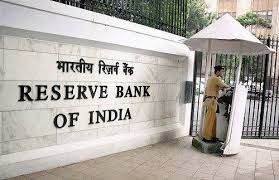 The new monetary policy framework announced by the government and the Reserve Bank of India on Monday could open up the possibility of further rate cuts as the inflation target for 2016 is set at six per cent.
The new monetary policy framework announced by the government and the Reserve Bank of India on Monday could open up the possibility of further rate cuts as the inflation target for 2016 is set at six per cent.
Consumer Price Index-based inflation has stayed below six per cent for the past four months and with global oil crude oil prices, notwithstanding the recent spike, are expected to stay benign.
Consumer prices rose an annual 5.11 per cent (2012 base) in January this year, compared with a 4.28-per cent increase in December 2014.
“We expect January 16 RBI target of six per cent to be over-achieved by 60 basis points.
“As such, we continue to expect RBI to ease monetary policy by an additional of 50 bps during the course of FY16 with the next rate cut anticipated in April 2015,” said Subhada Rao, senior president and chief economist, YES Bank.
“If commodity prices continue to remain soft, room for additional 25 bps rate cut may arise.
“However, our base case expectation remains at 50 bps policy easing,” she added.
The economic survey released last week had also said the six per cent inflation target by January 2015 could be met, which sees retail inflation to be 0.5-1.0 percentage points lower than the target.
Budget 2015: Complete Coverage
The inflation momentum, measured as the three-month average seasonally adjusted and annualised, has declined from 15 per cent to below five per cent, the survey said, adding that the momentum of food prices has declined even more and is at levels below overall inflation.
The fall in Consumer Price Index-based inflation allowed the central bank to reduce the interest rate in January, after a prolonged pause and after three rate hikes between October 2013 and January 2014.
One of the factors that could slow the pace for rate cuts is postponing the deadline of achieving fiscal consolidation by one year.
The government has now set 2017-18 as the target for reaching three per cent fiscal deficit.
For FY16, the target is set at 3.9 per cent (compared to 3.6 per cent projected earlier) and 3.5 per cent in the year after that.
Experts said the new monetary policy framework had put the onus equally on the government to keep inflation under check by adhering to fiscal discipline.
“Right now, RBI is made a victim of monetary policy decisions, but in the new setup, the government will also be made accountable since both will consult each other in a structured way.
"In the committee, the RBI can always say the government's fiscal deficit is too much and ought to be controlled to rein in inflation,” said D K Mittal, former financial services secretary.
The bond market also reacted to the hawkish note of the central bank with yields rising to a seven-week high on Tuesday.










